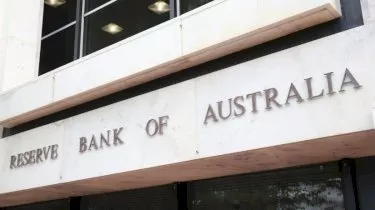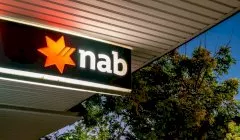Invest
What are the chances of a cash rate cut next week?
Following just shy of three years of a stagnant cash rate, the nation’s leading economists are now predicting an imminent rate cut, and popular lenders have already responded by dropping their interest rates.
What are the chances of a cash rate cut next week?
Following just shy of three years of a stagnant cash rate, the nation’s leading economists are now predicting an imminent rate cut, and popular lenders have already responded by dropping their interest rates.

The Reserve Bank is 91 per cent likely to cut rates on Tuesday, according to economists interviewed by Finder.
Finder’s RBA Cash Rate Survey revealed that 32 of the 35 economists interviewed believe that a 25 basis point decrease will be announced after Tuesday’s budgetary meeting.
The official cash rate is currently at 1.5 per cent, which is a historically low number; however, Finder believes it will hit a new low of 1.25 per cent.
Dr Andrew Wilson, from My Housing Market, believes Tuesday’s decision will be a rate cut due to unflattering stats released by the Australian Bureau of Statistics (ABS).

“RBA has clearly signalled its intention to cut rates and with its nominated sensitivity measure of unemployment now on the rise is set act. The release of the ABS GDP data for the March quarter the day following the rate announcement will encourage the bank to cut to be seen to be acting to stimulate the economy ahead of what is likely to be yet another underwhelming result for the economy,” said Dr Wilson.
Lenders react
Some lenders have already moved with the positive market sentiment surrounding the likelihood of a rate cut.
This positive sentiment was also boosted by the Coalition’s recent victory, meaning Labor’s plan to scrap negative gearing for existing properties was binned.
It was also boosted by the banking regulator’s moves to ease up conditions around loan serviceability for new applicants.
ING is the latest lender to drop its rate ahead of next week’s cash rate call, for those paying principal and interest on a variable package.
What can I save?
If an investor has borrowed $500,000 with a 25 point reduction on the official cash rate being passed on by the banks, the investor will save $900 a year.
Research suggests if investors switch from the current lowest variable rate on the market, which is currently 3.29 per cent, from the average variable rate of 4.91 per cent, investors could save $5,636 per year on a half a million dollar loan.
Approach with caution
However, banks might not pass on the full savings, according to Graham Cooke, Insights manager at Finder.
“If the RBA cuts by 25 basis points, this doesn’t necessarily mean banks will pass on the rate cut in full,” said Mr Cooke.
Mr Cooke’s comments are in line with those from Mortgage Choice earlier in the year, who said out-of-cycle rate cuts and hikes should be expected in this “lower for longer” environment.
About the author

About the author


Spending
Household Spending Pops, Rate Hike Looms: A CFO Playbook from an Australian Retail Case
Fresh ABS data shows household outlays running hotter than expected, particularly in services—stoking calls for an RBA move as early as February. For operators, the macro headline is simple; the ...Read more

Spending
State Street economist comments on softer-than-expected CPI data
In light of the latest Consumer Price Index (CPI) data release, Krishna Bhimavarapu, APAC Economist at State Street Investment Management, has provided insight into the implications for the Australian ...Read more

Spending
Moneysmart study reveals Gen Z women more concerned about finances than men
A new research conducted by ASIC’s Moneysmart has unveiled the heightened levels of stress and concern regarding finances and the cost of living among Australian Gen Z women compared to their male ...Read more

Spending
The cost of politeness: Aussies out of pocket by $1,350 due to 'awkward tax'
It's the time of year when Australians dive into their pockets for festive events and gatherings, yet a recent study by PayPal suggests that many are too polite, or perhaps too embarrassed, to ask for ...Read more

Spending
Aussies can ‘NAB Now Pay Later’ with the last major bank to embrace BNPL
NAB has become the latest bank to enter the BNPL market. Read more

Spending
Aussie households spent $368 a week on transport after petrol price surge
Fuel costs have increased by 40 per cent over the past year, a new report from the Australian Automobile Association has revealed. Read more

Spending
Voters say reducing the cost of living should be the government’s top priority
Aussies have ranked high cost of living as the top issue that needs to be addressed by the next government. Read more

Spending
Bodies back Labor’s commitment to stronger BNPL regulation
All parties should commit to stronger regulations for the BNPL sector, according to Financial Counselling Australia. Read more

Spending
Household Spending Pops, Rate Hike Looms: A CFO Playbook from an Australian Retail Case
Fresh ABS data shows household outlays running hotter than expected, particularly in services—stoking calls for an RBA move as early as February. For operators, the macro headline is simple; the ...Read more

Spending
State Street economist comments on softer-than-expected CPI data
In light of the latest Consumer Price Index (CPI) data release, Krishna Bhimavarapu, APAC Economist at State Street Investment Management, has provided insight into the implications for the Australian ...Read more

Spending
Moneysmart study reveals Gen Z women more concerned about finances than men
A new research conducted by ASIC’s Moneysmart has unveiled the heightened levels of stress and concern regarding finances and the cost of living among Australian Gen Z women compared to their male ...Read more

Spending
The cost of politeness: Aussies out of pocket by $1,350 due to 'awkward tax'
It's the time of year when Australians dive into their pockets for festive events and gatherings, yet a recent study by PayPal suggests that many are too polite, or perhaps too embarrassed, to ask for ...Read more

Spending
Aussies can ‘NAB Now Pay Later’ with the last major bank to embrace BNPL
NAB has become the latest bank to enter the BNPL market. Read more

Spending
Aussie households spent $368 a week on transport after petrol price surge
Fuel costs have increased by 40 per cent over the past year, a new report from the Australian Automobile Association has revealed. Read more

Spending
Voters say reducing the cost of living should be the government’s top priority
Aussies have ranked high cost of living as the top issue that needs to be addressed by the next government. Read more

Spending
Bodies back Labor’s commitment to stronger BNPL regulation
All parties should commit to stronger regulations for the BNPL sector, according to Financial Counselling Australia. Read more








